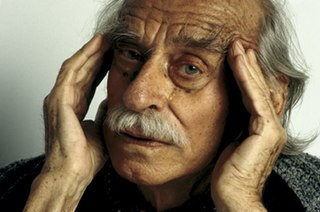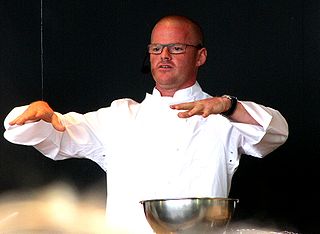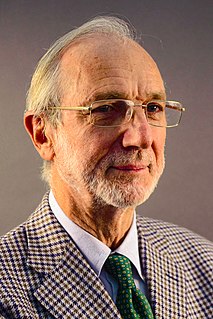A Quote by Bernard Rudofsky
I believe that sensory pleasure should take precedence over intellectual pleasure in art and architecture.
Quote Topics
Related Quotes
Cognitive states of mind are seldom addictive, since they depend upon exploration of the world, and the individual encounter with the individual object, whose appeal is outside the subject's control. Addiction arises when the subject has full control over a pleasure and can ponder it at will. It is primarily a matter of sensory pleasure, and involves a kind of short-circuiting of the pleasure network. Addiction is characterized by a loss of the emotional dynamic that would otherwise govern an outward-directed, cognitively creative life.
When you're comfortable and secure, it's not enough. The mind doesn't stop there because it has to continue to focus itself as this body, so it moves to pleasure. And pleasure really is a non-existent thing. When we're experiencing pleasure, we're trying to hold onto it as it leaves, so it really isn't pleasure. Pleasure is pain because we're grasping.
In architecture, to do anything beyond object form is often treated as something extra-disciplinary - something outside the discipline that has nothing to do with art. So I'm making it clear that this is an artistic choice. It's not everyone's artistic choice. Some people should choose only to make object form because that's what gives them pleasure. But there are people for whom aesthetic pleasure comes from doing something else, and why would you deny that choice? It's another autonomous choice.
At the heart of our desires is eternal happiness without the slightest hint of misery. You could say that we are pleasure seekers; however, seeking pleasure from the objects of our five senses produces fleeting moments of pleasure whereas, pleasure of one's self, a soul, is eternal and ever-increasing pleasure.
Architecture is art. I don't think you should say that too much, but it is art. I mean, architecture is many, many things. Architecture is science, is technology, is geography, is typography, is anthropology, is sociology, is art, is history. You know all this comes together. Architecture is a kind of bouillabaisse, an incredible bouillabaisse. And, by the way, architecture is also a very polluted art in the sense that it's polluted by life, and by the complexity of things.
Cycling is so hard, the suffering is so intense, that it’s absolutely cleansing. The pain is so deep and strong that a curtain descends over your brain….Once; someone asked me what pleasure I took in riding for so long. ‘PLEASURE???? I said.’ ‘I don’t understand the question.’ I didn’t do it for the pleasure; I did it for the pain.
There are three sorts of pleasures which are advantageous, and three which are injurious. Finding pleasure in the discriminating study of ceremonies and music, finding pleasure in discussing the good points in the conduct of others, and finding pleasure in having many wise friends, these are advantageous. But finding pleasure in profligate enjoyments, finding pleasure in idle gadding about, and finding pleasure in feasting, these are injurious.
Pleasure is not the goal of man, but knowledge. Pleasure and happiness comes to an end. It is a mistake to suppose that pleasure is the goal. The cause of all the miseries we have in the world is that men foolishly think pleasure to be the ideal to strive for. After a time man finds that it is not happiness, but knowledge, towards which he is going, and that both pleasure and pain are great teachers.





































